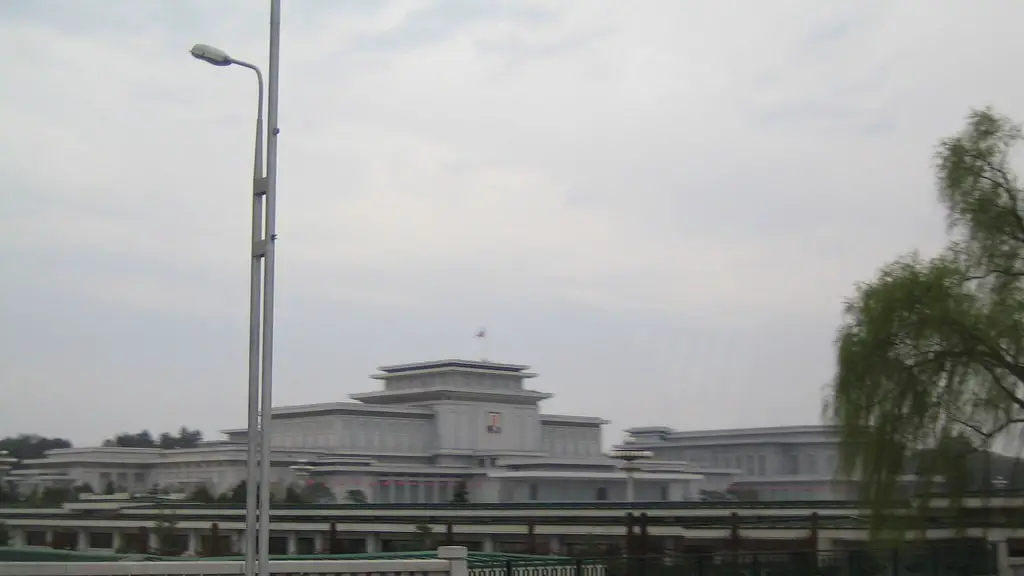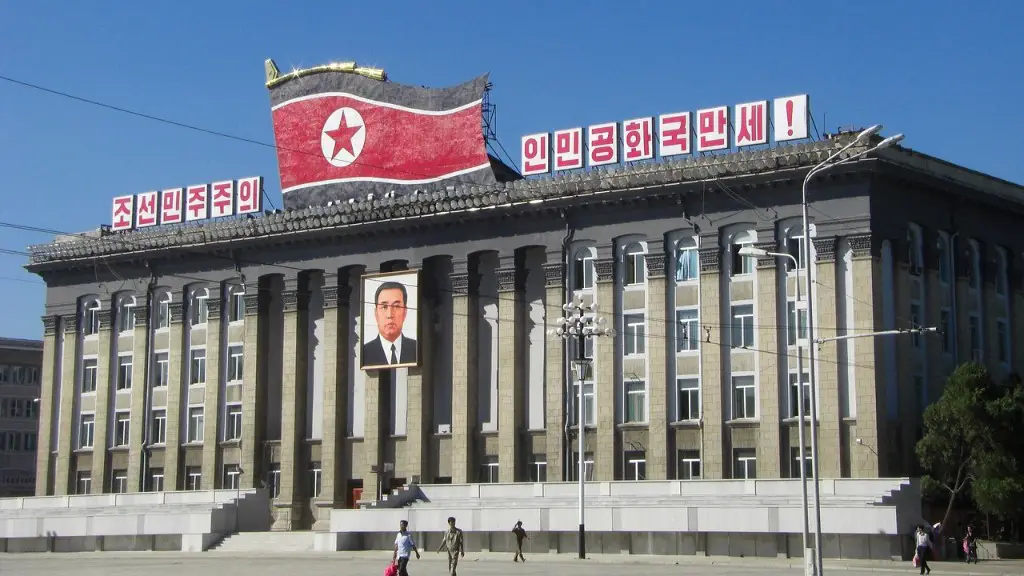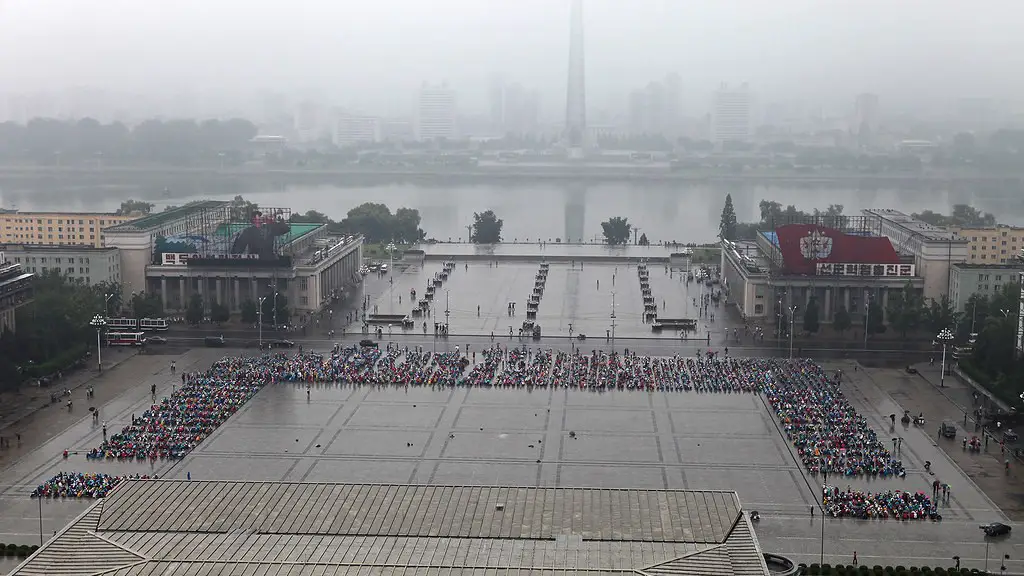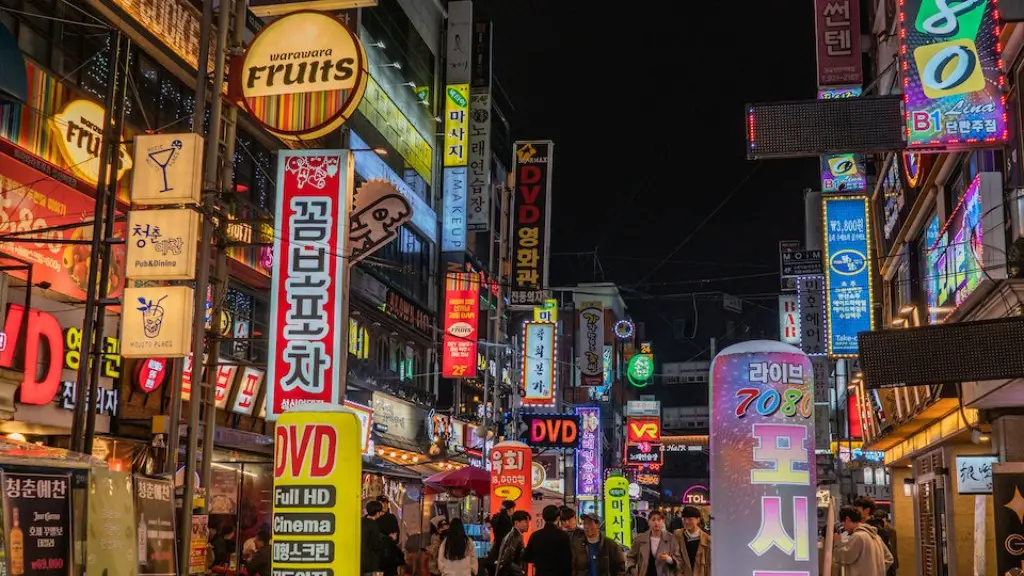What’s really happening in North Korea? A question that has remained largely unanswered for a long time, however, with media and human rights activists actively playing an important role in unravelling the inner state of affairs, it no longer remains a mystery. To begin with, North Korea is an isolated, autocratic state with a leader that relies on his citizens to remain and support him in order to preserve his totalitarian rule. With its closed borders, citizens of the country have very limited access to the outside world. Nevertheless, considerable insights into the reality of the country have been gleaned by organizations such as Human Rights Watch and Freedom House.
Famine is one of the major challenges faced by North Koreans. A United Nations report has concluded that more than 10.2 million people, approximately 40 percent of the population, require immediate aid and assistance. One of the greatest catalysts of the crisis is the government’s excessive military spending, which has weakened the national economy and has thus, in turn, significantly affected the nation’s food supply. Moreover, the North Korean government has been alleged to be involved in extrajudicial killings, detention centre punishment, labour camps and torture, in order to coerce dissent.
These harrowing revelations have spurred a plethora of international responses. Launched in August 2017, the “Luxembourg Initiative” was driven to provide emergency humanitarian aid to North Korea. The EU has actively taken part in this mission in its bid for reunification and denuclearization of the country. The US State Department has also fought for human rights through economic sanctions, though experts indicate that these have not been very effective. Kim Jong Un has still retained power in the country despite these various attempts.
Increasing aid is a risky venture, however, due to the international community’s inability to guarantee the effective and legitimate distribution of the supplies. Consequently, potential providers of aid worry that money or goods may end up benefiting the privileged elite of the nation or funding the military activities of the government. As such, the government has countered criticism by accusing the international community of interference.
Recently, UN Human Rights Council Special Rapporteur to North Korea, Tomas Ojea Quintana, reported that despite denuclearization initiatives and aid delivery, there is renewed engagement in additional nuclear activities. This has invoked considerable caution amongst the international community, leading them to call for stringent denuclearization protocols and more efficient ways of ensuring proper aid delivery. Unfortunately, many of these hopes continue to remain unrealized.
In conclusion, North Korea remains a complicated and intricate conundrum with both economic and military implications. While there have been numerous attempts at attenuating the crisis using both economic sanctions and humanitarian aid, divining a predictable and lasting solution as to how the nation should set about its future is still up for debate.
Contemporary Challenges
North Korea’s contemporary challenges entail the progress of denuclearization, human rights issues and the present state of food security and deprivation. Most recently, the North Korean government has denied any direct involvement in nuclear activities, and the United Nations has underscored the importance of the two security Council resolutions in an effort to deepen their analysis into the situation.
Humanitarian aid has also become an increasingly debated topic, with many criticising the poor distribution of aid, while others liken the situation to trespassing interference on the part of foreign organisations. Government officials have responded warily, striving to ensure that aid is distributed in a locally supported and monitored manner.
Most notably, international bodies and activists, have carefully monitored the state of food security in North Korea. It has been reported that 10.2 million people are in need of assistance, however, limited access to the outside world has resulted in the nation being vulnerable to information manipulation.
Discrimination
Discrimination is one of the most critical issues in North Korea today, as it is heavily embedded in the political and social environment. Political oppression, gender inequality, forced labour, and lack of religious freedom are a few of the many issues that individuals within the state face.
The extent to which the state’s leaders enact discrimination is profound, with reports consenting to human enslavement, kidnapping and torture in political prison camps. Moreover, in regards to political and economic freedom, discrimination severely limits the citizens’ ability to freely participate in economic, artistic and sporting institutions.
In the current climate, a large number of international actors are focused on improving the quality of life for North Koreans, primarily by way of improving access to information and national structures of education. Non-governmental organisations continue to bridge the potential gap between the nation and the international community in this regard.
Political and Economical Insecurity
The power and authority of Kim Jong Un and the North Korean government made sure that North Korea became a highly politicized state. This political insecurity, as well as economical insecurity, has led to the denial and restriction of freedom of speech, and travel. Citizens feel deeply censored, with very limited access to information and knowledge outside the leftist, anti-western narrative of the state.
The economic insecurity of North Korea has led to the nation’s unsuccessful efforts of developing an autarkic economy. International trade with China and Russia created a de-linkage of the North Korean system by stirring the economic tides. Thus, the lack of economic stability in North Korea has made the livelihoods of citizens dependent on external contributions.
The geopolitical pressures within Asia are intensifying due to the changing nature of the national and international networks on the Korean Peninsula. In the contemporary context, the economies of South Korea, Japan and China have had far-reaching impacts, with military tensions leading to instances of political instability.
The International Community’s Response
In light of North Korea’s current challenges, world leaders, non-governmental organisations and trade associations have actively contributed to alleviating the situation. Several frameworks have been established to combat the issues of human rights, food security, nuclear proliferation and denuclearization.
The European Union has championed the Luxembourg Initiative, which has recently been gaining considerable traction, and has been actively implemented by the United Nations. The US, in the mean time, has responded to the crisis with crippling economic sanctions. While experts have praised both of these approaches with optimism, not all have been convinced of the efficacy of either option.
Furthermore, the Asian Development Bank has outlined numerous proposals for reforming the nation’s economy, with emphasis on how the public sector can create job opportunities, as well as invest in public infrastructures. On the other hand, civil societies and international organisations such as Transparency International and Human Rights Watch have also worked to mitigate human rights abuses, by rigorously monitoring the local and international developments.
Innovations in Technology
North Korea is comparatively underdeveloped when it comes to technology, meaning that the recent advances have not been properly utilized in society. In light of this, many experts have noted the nation’s considerable potential for navigating new technological realms and affairs.
The advancements of digital services, particularly those focused on financial technology such as digital wallets and online payments, could potentially create opportunities for international exchanges, as well as further knowledge transfer from the neighbouring countries. With no efforts towards internationalizartion, though, North Korea will not be able to make use of the latest technological developments.
In response to this, a number of tech companies have proposed partnerships to bring North Koreans up to date with the current advances of technology. These companies offer solutions such as introducing the latest telecommunication services and modernizing the infrastructure and other daily operations.
North Korea’s potential for internet and telecommunications has recently attracted the attention of tech experts, interested in exploring the applications of 5G and the internet in the context of the state.
Conclusion and Outlook
The situation in North Korea requires an extremely complex and intricate approach, primarily because of its hermetic nature. Several international bodies have intervened in the humanitarian crisis, while healthcare, education and technological advancements remain largely hindered by political and economic correlations, as well as the lack of freedom and justice.
Undoubtedly, the international community has a moral obligation to ensure the safety and security of the North Korean civilians. Whilst the presence of Kim Jong Un and his undemocratic rule makes it difficult for certain external initiatives to get off the ground, much of the focus remains on alleviating the situation and facilitating reunification.





